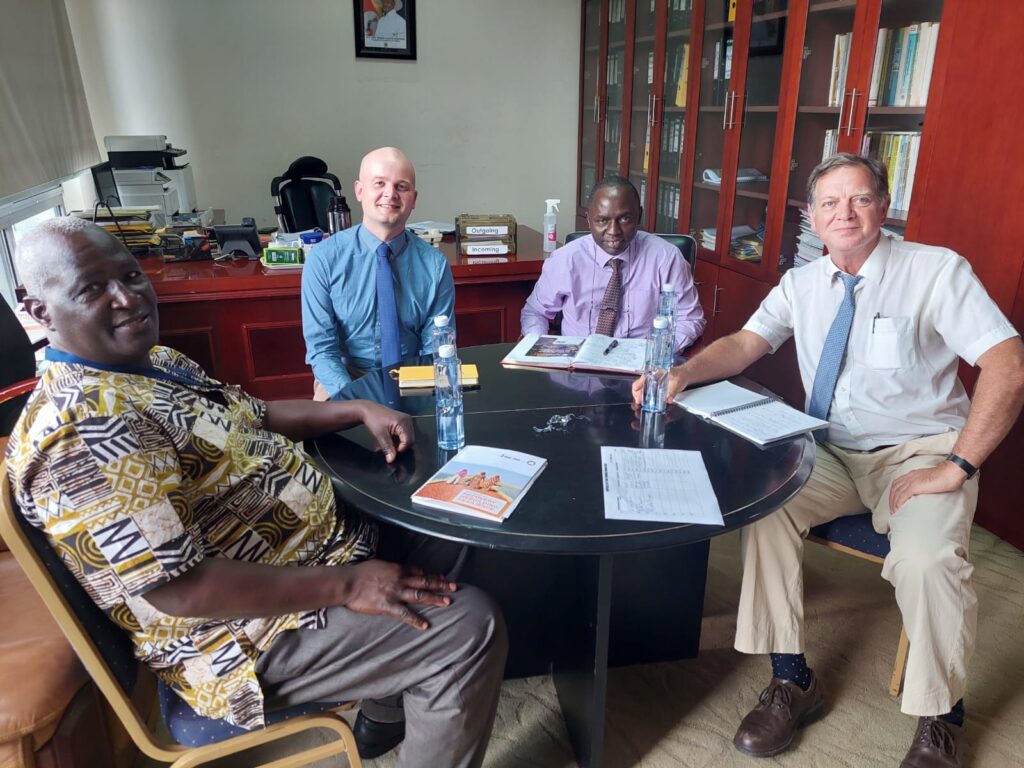Thursday, June 8, Foresight4Food under its FoSTr programme organized the workshop ‘The Future of Food: Opportunities for Foresight to Support Food System Transformation in Uganda’. The workshop brought together 44 stakeholders from across the Ugandan food system to discuss and explore the opportunities for foresight and scenario analysis to support processes of food system transformation in Uganda.
The workshop was highly interactive, bringing multi-stakeholder perspectives on the food system together. It discussed opportunities for using foresight to support ongoing policy processes while offering a first glimpse at what value foresight can offer for food system change. Through interactive discussion, we learned more about the potential role of foresight in supporting Uganda’s food system transformation process.

Meeting with potential research partners, facilitators, and government agencies
During the visit, the team consisting of Dr. John Ingram (University of Oxford) and Just Dengerink (Wageningen University and Research), had meetings with three different potential research partners: Makerere University, RUFORUM, and the National Agricultural Research Organization (NARO). The discussion involved seeking assistance with convening the necessary research team across the university, government, and private sectors, engaging students in FoSTr, contributing to the quantitative modeling aspects of the project, and potential partnership to implement the FoSTr programme in the country.
The team also met with key government agencies involved in the field of food systems, agriculture and food security: the National Planning Authority (NPA), the Ministry of Agriculture, and the National Food Systems Coordination Committee.

During the visit, the key objectives of this exploratory visit were met. Through meeting with key government agencies, and potential research partners, we brought more clarity on how FoSTr could contribute to ongoing policy processes. By meeting three research organizations and two potential country facilitators, we could make a start with organizing the implementation of FoSTr programme in Uganda.
Additionally, through the workshop and meetings with key stakeholders across the food system, we gained a better understanding of key trends and developments in the Ugandan food system, to which our foresight work could link.